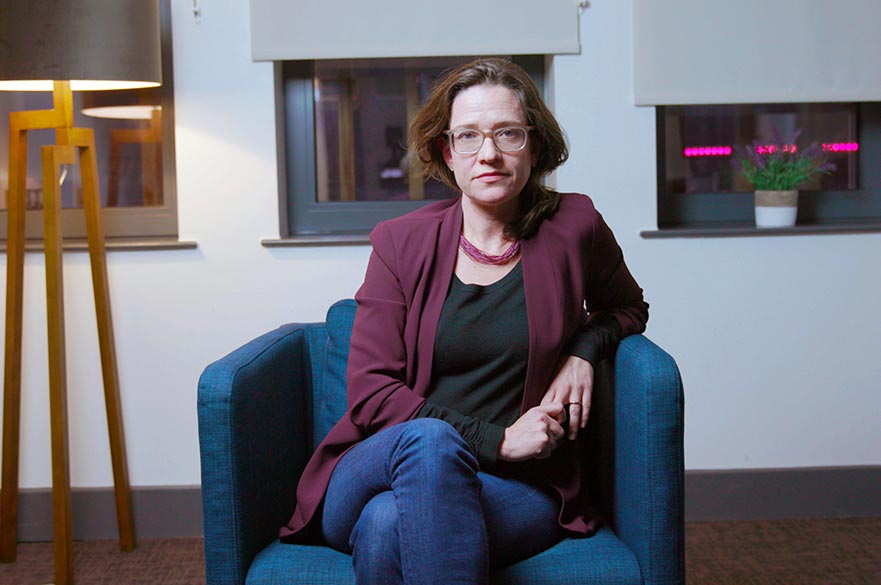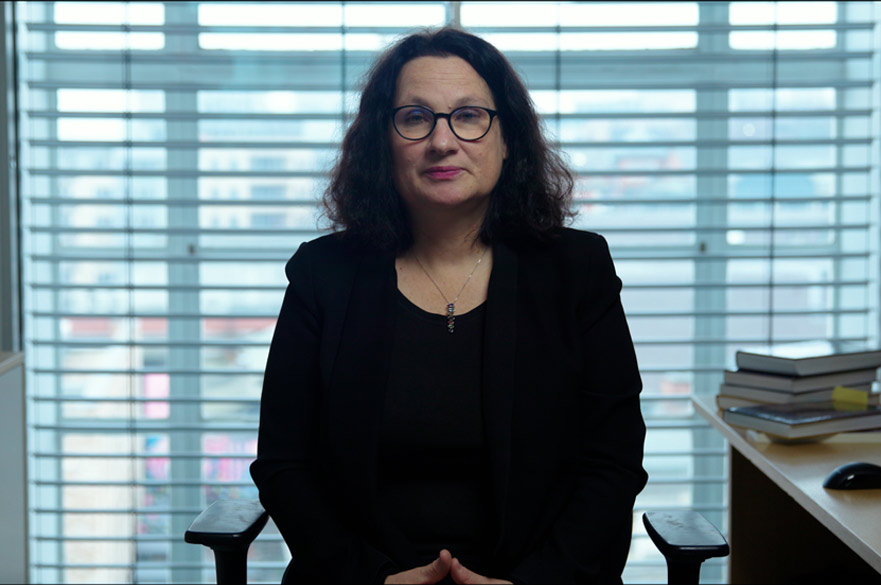Re-writing the narrative: breastfeeding experiences
Jenni Ramone, Associate Professor
I’ve always wondered: why does breastfeeding make people so uncomfortable? Why is it such a fiercely debated topic? Before the invention of formula milk and the breast pump, humanity’s reliance on breastfeeding was more straightforward. But today, the realities and complexities of breastfeeding are often either taboo, unspoken, or romanticised in art galleries and museums, such as in the famous artwork depicting the nursing Madonna.
My research journey
Even though I had a relatively easy breastfeeding experience, I experienced some of the turmoil many of the parents who can’t breastfeed often describe. I felt significant outside pressure related to breastfeeding, and to begin weaning earlier than my baby needed because of other people’s views of what was ‘normal’.
Before returning to university to start my research career, I worked in a graduate IT role for a while. Whilst working in that graduate role I commuted on trains, which meant a lot of time for reading. One day, I was re-reading Voltaire's Candide, and suddenly realised that if I didn't go back to university, I would never have the opportunity to write an essay on Candide, or anything else, ever again.
My graduate role was fascinating, but it didn’t give me the same sense of satisfaction and inspiration achieved from creating something new, and discovering new ways to think about a subject. So, I decided to apply for a PhD and was lucky enough to receive a fully-funded studentship, which meant my fees were paid for by the university and I was given extra funding to cover my living expenses too. After completing my PhD, I started a full-time permanent lectureship, and four years later, my daughter was born.
I began researching contemporary postcolonial and world literature in English and in English translation, thinking about how literary texts are received, the impact they have, who reads them, where, why, and how literary texts address their historical, political and cultural contexts. My first book was on a single author, while my second explored postcolonial literatures and theories from across the world. I expanded on this for my third book where I wrote about what reading means in Nigeria, India, Cuba and in Black British Writing. My fourth book will be published soon: exploring gender in twenty-first century global literature.
Revealing new and previously hidden stories
The scope of my research meant that I had the opportunity to read widely, and I came across several fascinating representations of early motherhood and breastfeeding. Most of them were uncomfortable, painful, and even traumatic. I thought back to my own experience of breastfeeding and decided I wanted to support new parents and healthcare professionals by drawing on art and literature to make people aware of more varied breastfeeding practices, to move away from the very limited, ‘official’ breastfeeding narrative which is restrictive and inaccessible to many parents, and can be harmful as a result.
My research explores the representation of breastfeeding in contemporary global literature and art. The variety of representations and local, national and historical contexts means every image and every text is a rich source to explore. The texts and art works themselves are fascinating: from short stories, to novels, paintings and art installations.
By bringing these different narratives to light, I am revealing new, previously hidden breastfeeding stories. With these stories, I aim to improve the experience, health and happiness of new parents and babies by showing them there is not just one way to breastfeed.
I want to make their experience easier, more comfortable, more accessible, and easier to talk about. My work aims to provide a cross-disciplinary solution to support parents and healthcare professionals, which is informed by global practices, histories, and stories of breastfeeding.
To me, research means finding new, and exciting ideas, and navigating through them in a valuable and meaningful way. Research connects me to people from other departments, disciplines and universities, from different fields and sectors, and with the public. I feel happiest when I am researching and I never want the day to end.
Follow my story
My story doesn’t end here. Keep up to date with me and my research by keeping an eye on my academic profile or following me on Twitter @jenniramone. For anything else, please feel free to email me on jenni.ramone@ntu.ac.uk.
Jenni Ramone
Jenni is an Associate Professor in the School of Arts and Humanities, focusing on representations of breastfeeding in global art and literature, comparing located (particular, material contexts) and global representations of breastfeeding in literary texts and works of art.
Meet the researchers
Forget lab coats and research papers. It's time to get personal. Meet the people behind the research and uncover fascinating truths about their experiences.


